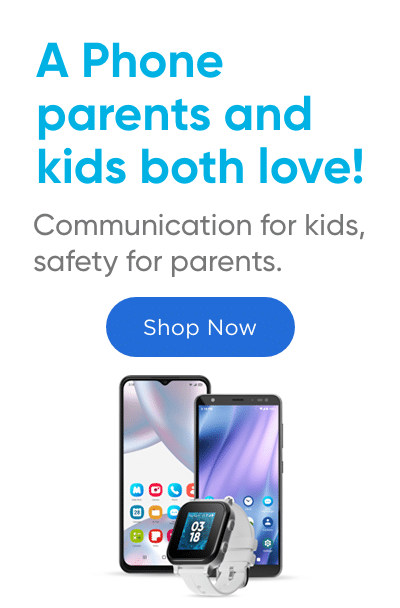3 Ways Your Social Media Habits Might Be Impacting Your Child
NOV 22, 2022
3 Ways Your Social Media Habits Might Be Impacting Your Child
You’ve just walked in the door from a long day and your kids are hungry for dinner and attention. Do you find yourself decompressing by scrolling social media first? There might be a new follower or more likes racking up on your latest post. Do you sneak a peek, or do you wait?
Your holiday calendar is already filling up with family activities and dinners. You want to spend time together, revisiting traditions and making new memories. Have you thought about where your phone will be?
Just as with any action in parenting, your kids are observing and absorbing your decisions, and the evidence is stacking up that social media can have long reaching consequences for their mental health and yours.
Social media has a mental health problem
Through ever-growing social media platforms, there are endless ways to connect with others and express yourself online. This has led to research efforts to understand the long term effects of social media on society.
Studies suggest symptoms from social media’s impact on mental health can range from anxiousness, loneliness, and depression to body image issues, increased risk of self-harm and suicide.
One Canadian study states that those who reported spending two or more hours per day on social media are much more likely to describe their mental health as poor or fair than students who occasionally log on.
Are likes hurting those you love?
Social media is so ingrained into the daily lives of Americans, it’s hard to think that it’s only been around for two decades.
Algorithms encourage constant connection. It’s important to understand when social media may be a problem for you and your kids.
To help you be a more conscious digital citizen, we’ve outlined some indicators that can help you know if usage is becoming problematic for you and your family.

1. Are you being too social?
Too much of anything is relative to your situation, but a study at University of Pennsylvania found that limiting social media use to less than 30 minutes per day can decrease feelings of depression and loneliness.
Most people spend well over the recommended usage.
In 2021, Pew Research Center found 84% of U.S. adults use some form of social media.
Data collected by Edison Research drills in a bit further, suggesting 92% of moms use social media. And according to Statista, mom’s self-reported a whopping 214 minutes per day on social media. That translates to almost a quarter of the day!
Teaching kids about responsible tech use requires a willingness to follow similar rules that you give them, or at least comparable. In many cases, parents create tech rules for their kids, while not making rules for themselves. This is a double standard, and depending upon the age of your kids, you can lose their trust.
If the kids are required to stow their device during dinner while you’re doing #foodie shots, you can plan on less-willing device power downs from your young ones.
2. Are you connecting to everyone, except your kids?
When you pick up your phone and zone out in front of your kids, are you choosing them or everything else that’s on your phone? Even if they’re not saying it, they’re picking up on everything you do.
“Children, especially in the early years, are like little sponges, absorbing all the information around them and then actively making sense of it,” explains Dr Eva Lloyd, Professor of Early Childhood at the University of East London.
If too much time with your kids is being spent on social media, it can alter the way they perceive the world in general.

Make family time about family
Whether it’s a nightly routine, or doing activities in which phones can be left out, powering down together is a great chance to increase the connection with your kids.
3. Are you parenting or sharenting?
If you’ve never heard of “sharenting”, you’re not alone. It was coined by The Wall Street Journal about 10 years ago to describe the phenomenon of parents sharing photos and videos of their kids on social media.
Sharenting isn’t always a bad thing. Parents naturally like to share their kids’ accomplishments and exciting moments, which can help build community around your family. But parents sharing kids’ photos used to be isolated to family, friends, and personal acquaintances.
Social media has changed that. According to one study, over 75% of parents post their kids’ information on social media, and 80% of those have followers they’ve never met.
Unless someone has a private account, every time they share a photo or video of their child, they’re allowing access to anyone in the world. This includes predators.
In an environment where nothing is truly private, and everything is permanent, over-sharing content about your kids could take away their right to privacy.
Additionally, research by University of Central Florida found that parents who frequently share content about their kids were more likely to have friend-like relationships with their kids—offering less guidance than other parents. This permissive style of parenting has been linked to problematic internet usage among kids.
Learn to power down
If you feel like your social media use is getting in the way of your parenting, find ways to disconnect. You can try powering down when your kids do. This will show them that you’re able to exercise self control, follow the same rules, and prioritize your family.
Think before you share
A good way to make sure you’re not over-sharing, here are a few ways to check yourself before you click that share button.
- Why are you sharing? It seems obvious, but this has to be at the forefront of each post about your kids. It’s their information you’re sharing, and it’s important to consider why it’s necessary.
- Who can see the post? Beyond considering if it’s a good idea in general to post, it’s a good idea to think about who will be able to see this post, and what that could mean in the near or far future.
- Will the post be embarrassing? Could this be embarrassing for you or your child now, or in the future? If the answer is yes, it may be best to hold off on posting, as it could negatively impact your child in the short or long term.
Being a digital parent
Parenting is never easy. Sometimes it’s easier to escape to your phone when things get rough, but remember that your kid is looking to you to help them navigate the world IRL and digitally.
Don’t get discouraged. We’re all learning, whether it’s the hard way or not. There are a lot of suggestions in this article that may be difficult to commit to, but it comes down to keeping your child’s best interest in mind when you pick up your phone. If you can always be mindful of how your digital behavior will impact them, you’re already making a positive impact.












Success!
Your comment has been submitted for review! We will notify you when it has been approved and posted!
Thank you!